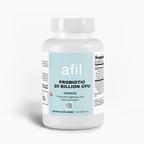Buckwheat (Without Gluten)
Buckwheat, a gluten-free seed often used as a grain, may cause sensitivities due to its unique proteins, FODMAP content, or plant compounds. Avoid it, try alternatives like quinoa or millet, and support digestion with probiotics and enzymes.
🌾 What is Buckwheat?
Buckwheat is a gluten-free seed often used as a grain alternative in cooking and baking. It is commonly ground into flour or cooked whole for use in a variety of dishes.
🤔 Why Do I Have a Sensitivity to Buckwheat and Its Components?
Sensitivity to buckwheat may happen for several reasons:
- Protein Sensitivity: Buckwheat contains unique proteins, such as globulins, that may trigger sensitivities.
- FODMAPs: Buckwheat can include fermentable carbohydrates that cause bloating or digestive discomfort in sensitive individuals.
- Plant Compounds: Natural compounds like tannins in buckwheat may irritate some digestive systems.
- Processing Effects: The way buckwheat is processed may impact its digestibility.
🛠️ What Can I Do About It?
If you have a sensitivity to buckwheat, try these steps:
- ❌ Avoid Buckwheat: Remove buckwheat and recipes containing it from your diet.
- 🍚 Use Alternatives: Substitute with quinoa, rice, millet, or oats.
- 🔍 Read Labels: Be mindful of hidden buckwheat in gluten-free blends or processed foods.
- 📝 Track Reactions: Keep a food diary to monitor symptoms and triggers.
- 📅 Retesting: Eliminate buckwheat for now and retest your sensitivity in 6–8 weeks.
💊 Which Supplements Can Help?
To support your health while managing arrowroot flour sensitivity, consider:
🤔 Why Do I Have a Sensitivity to Buckwheat but Not Other Grains?
You might tolerate other grains but react to buckwheat due to:
- Unique Proteins: Buckwheat contains proteins that differ from those in other grains, which may trigger reactions.
- FODMAP Levels: Buckwheat’s carbohydrate profile may cause symptoms that other grains do not.
- Plant Compounds: Buckwheat contains natural compounds, such as tannins, not found in other grains.
- Consumption Patterns: Buckwheat may be consumed in larger amounts in certain recipes, amplifying sensitivities.
🍽️ Popular Dishes or Recipes That Involve Buckwheat
- Buckwheat Pancakes
- Buckwheat Bread
- Buckwheat Noodles (Soba)
- Buckwheat Porridge
- Buckwheat Muffins
🍽️ Alternatives (If Tolerated)
- Quinoa
- Millet
- Rice
- Oats
.png?width=100&height=75&name=AFIL%20Logo%20(1).png)




